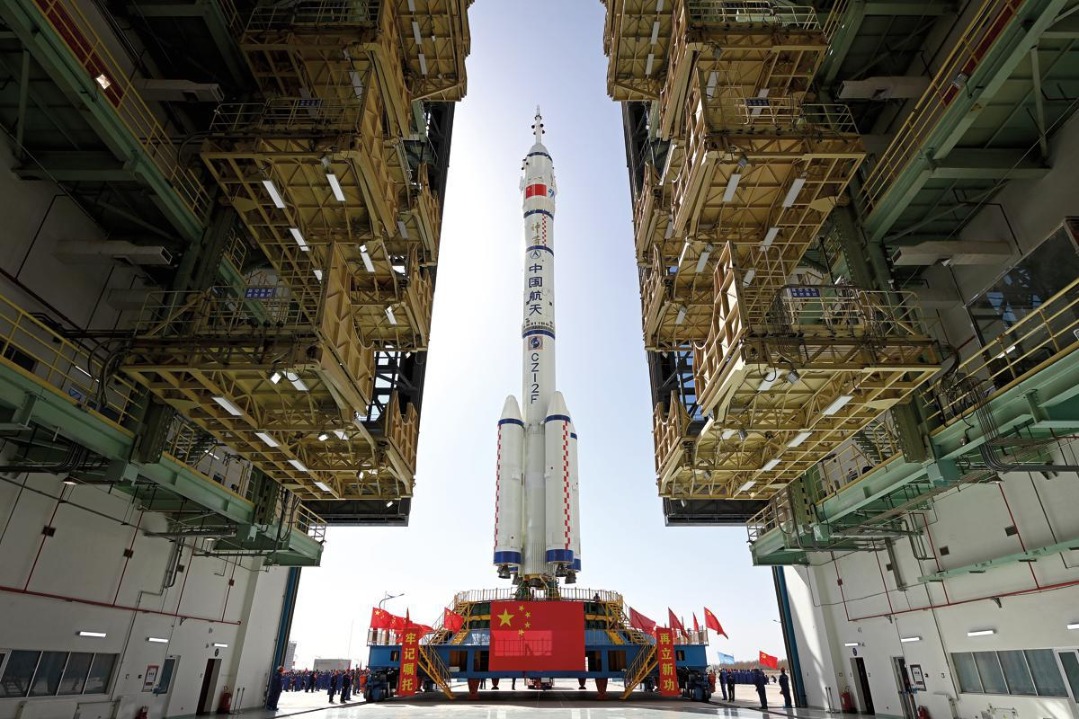China bolsters efforts to integrate technologies with transport sector


China is intensifying its efforts to integrate cutting-edge technologies such as cloud computing, big data and the Internet of Things into its transportation system, aiming to achieve high-quality development in the sector, a senior official from the Ministry of Transport said on Thursday in Beijing.
Liu Pengfei, spokesman for the ministry, said the country planned to boost innovation in transportation technology, strengthen the construction of new infrastructure and promote data interoperability to drive progress in smart transportation.
"We aimed to lead the high-quality development of transportation by focusing on the integration of new technologies with the transportation industry, advancing new quality productive forces in the sector," Liu said. He made the remarks at the 2024 Digital Transportation Conference.
Li Gang, vice-president of the China Association of Transportation, highlighted that digital transportation in China had moved from conceptual planning to a stage of practical application. Data resources, key application scenarios and innovative technologies have driven the industrialization and large-scale use of smart transportation products. These developments have been reshaping industry processes, systems, and regulatory frameworks, fostering a digital transformation across the sector.
Despite these advancements, challenges remained, particularly regarding the availability and quality of data. According to Li Jian, deputy director of the Highway Research Institute under the Ministry of Transport, there was still a lack of comprehensive, cross-regional, and cross-industry data.
"Data only has value when it is large-scale, accurate, and real-time. Otherwise, even a small or incomplete dataset can be misleading," Li said, stressing the importance of building a robust data ecosystem to support smart transportation solutions.
Another issue discussed was the use of public data. While efforts were underway to open and share data across the industry, Li expressed concerns about the lack of a clear regulatory framework for data usage.
"We urgently need national policies to ensure the proper use and sharing of public transportation data," he said.
China's push for digital transportation is not limited to technological innovation but also encompasses sustainable development goals. Zhao Xi, a senior transport specialist at the World Bank, noted that Tianjin had won the 2024 Sustainable Transport Award, recognizing its commitment to green and inclusive transportation. The city was selected for its efforts to improve non-motorized transport options and make significant infrastructure upgrades that promote sustainability.
"This achievement is a testament to the city's vision for integrating low-impact, environmentally-friendly transportation solutions," she said.
The award is presented annually by the Institute for Transportation & Development Policy and the Sustainable Transport Award Committee.
China's transportation sector has undergone rapid development over the past few decades. The country's integrated transportation network has expanded to over 6 million kilometers, enhancing service capabilities. Last year, China managed 61.3 billion cross-regional trips, while the express delivery sector saw substantial growth, handling 162.48 billion parcels.
These figures underscore China's strength in global transport efficiency, greatly benefiting passengers and cargo delivery effectiveness, said Wu Chungeng, chief planner of the Ministry of Transport, at a news conference earlier in Beijing.
Despite the challenges, the digital transformation of China's transportation sector holds immense potential for the future. As the nation pushes for smarter, more sustainable transport systems, the integration of advanced technologies, coupled with a clear regulatory framework, will be crucial in overcoming existing barriers.
- China bolsters efforts to integrate technologies with transport sector
- China's health program to support financial burden on patients
- China's grain output tops 700m tons
- Shanxi slopes thrive with winter tourism buzz
- Harbin Ice and Snow World introduces giant snowflake maze
- Crackdown on black market banks in Macao sees 846 arrested




































